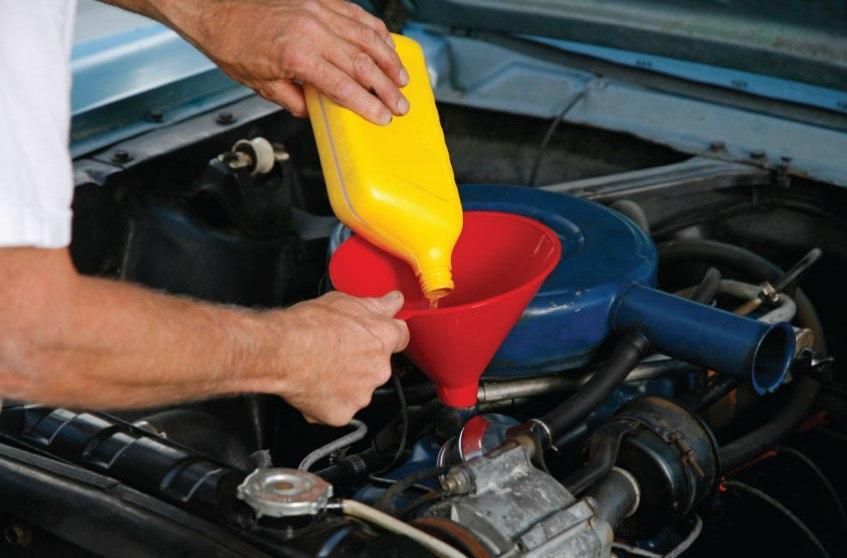5 Oil Change Facts!

If you want to keep your vehicle in tip-top shape, you should understand why oil changes are important. It is not only crucial for the health of your engine but will save you money in the long run. Many auto shops report vehicles with dirty and damaged engines because drivers have exceeded the oil change mileage interval, possibly trying to save a little money. However, repair for engine damage caused by dirty or low oil is far more costly than regular oil changes.
Consider these five oil change facts:
- The Purpose of Engine Oil. Oil lubricates the engine so that its parts don’t grind against each other; keeps the engine from overheating; and carries away dirt, dust, and other contaminants that would otherwise clog engine parts.
- Changing the Oil and Filter. The oil change interval will vary depending on the model of your vehicle, its age, the type of oil used, and your driving conditions. It used to be normal to change oil every 3,000 miles, but with modern lubricants, many engines today have recommended oil change intervals of 5,000 to 7,500 miles. If your vehicle requires full-synthetic motor oil, you may go as far as 15,000 miles between services!
- Dashboard Warning Light. Some vehicles have the dashboard light programmed to come on automatically at 3,000-5,000 miles after the last oil change. In some cars, particularly older cars, that light might not come on until the level of oil is too low, so don’t rely on the dashboard light. Follow the manufacturer’s recommendation of oil change intervals listed in your owner’s manual.
- Viscosity Codes. The viscosity codes (for example, 10W-40) tell you how thick or thin (viscous) the oil is in hot and cold weather. Again, follow the manufacturer’s recommendations stated in the owner’s manual for the viscosity preferred for your car in particular driving conditions.
- Conventional, Premium, and Synthetic Oils. Typically, synthetic oil is required in certain high-tech engines. Traditional engines will typically use conventional oil. Premium oil offers extra additives that may be useful for special driving needs. There are also blends that combine synthetic and premium conventional oils. Be sure to ask your mechanic for recommendations on what is best for your vehicle.
Need to know more about why oil changes are important? Contact our ASE Certified technicians at Phil's Service today about our oil change coupons and to schedule an appointment. Our auto shop proudly serves residents in the community of Killeen, TX, and surrounding area.
Do you have questions about why oil changes are important? For answers to your questions, ask an oil change expert at Phil's Service and remember to ask for their oil change coupons.If you want to keep your vehicle in tip-top shape, you should understand why oil changes are important. It is not only crucial for the health of your engine but will save you money in the long run. Many auto shops report vehicles with dirty and damaged engines because drivers have exceeded the oil change mileage interval, possibly trying to save a little money. However, repair for engine damage caused by dirty or low oil is far more costly than regular oil changes.
Consider these five oil change facts:
- The Purpose of Engine Oil. Oil lubricates the engine so that its parts don’t grind against each other; keeps the engine from overheating; and carries away dirt, dust, and other contaminants that would otherwise clog engine parts.
- Changing the Oil and Filter. The oil change interval will vary depending on the model of your vehicle, its age, the type of oil used, and your driving conditions. It used to be normal to change oil every 3,000 miles, but with modern lubricants, many engines today have recommended oil change intervals of 5,000 to 7,500 miles. If your vehicle requires full-synthetic motor oil, you may go as far as 15,000 miles between services!
- Dashboard Warning Light. Some vehicles have the dashboard light programmed to come on automatically at 3,000-5,000 miles after the last oil change. In some cars, particularly older cars, that light might not come on until the level of oil is too low, so don’t rely on the dashboard light. Follow the manufacturer’s recommendation of oil change intervals listed in your owner’s manual.
- Viscosity Codes. The viscosity codes (for example, 10W-40) tell you how thick or thin (viscous) the oil is in hot and cold weather. Again, follow the manufacturer’s recommendations stated in the owner’s manual for the viscosity preferred for your car in particular driving conditions.
- Conventional, Premium, and Synthetic Oils. Typically, synthetic oil is required in certain high-tech engines. Traditional engines will typically use conventional oil. Premium oil offers extra additives that may be useful for special driving needs. There are also blends that combine synthetic and premium conventional oils. Be sure to ask your mechanic for recommendations on what is best for your vehicle.
Need to know more about why oil changes are important? Contact our ASE Certified technicians at Phil's Service today about our oil change coupons and to schedule an appointment. Our auto shop proudly serves residents in the community of Killeen, TX, and surrounding area.
join Our vip Club
Get Coupons & Specials
Would you like to to hear about our latest offers first? Go ahead try it, you'll get savings sent directly to your phone!




